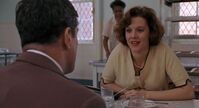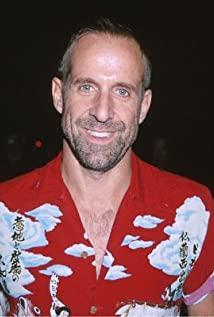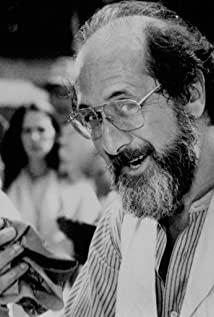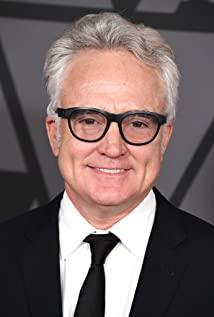This is De Niro's film in a different style, released in 1990. Counting this one, he has starred in three movies in 1990. It's enough for him to be busy on the set to calculate the schedule.
This story is based on a true event. The story is that in 1969, the brain doctor Searle came to a psychiatric hospital in New York City as a clinician. Through observation of patients and understanding of various drugs, he treated patients with compulsory syncope in the hospital. Dr. Searle's daring medication has brought a group of patients back to consciousness after they had fainted for decades. In particular, Reina, one of the patients, was bedridden for 30 years and recovered as normal. It's a pity that such a good time is only for a few short days. The film's final subtitle says: "Never again have a scene as dramatic as the summer of 1969 happened."
What is the role of a doctor in a hospital? It is often said that "treat the disease and save the life" summarizes the standard of the doctor. A good doctor needs to have two qualities. One is to be full of affection for patients and to treat patients like relatives. To "save people"; the second is to love your career very much. The patient is the object of his work. To "heal". As long as a doctor has one of the two, it is not bad. "Although it is not in the middle, it is not far away." However, we often encounter Mongolian doctors who regard patients as cash cows, so it is no wonder that the disputes between doctors and patients have intensified. In the film, Searle is a very dedicated doctor with superb medical skills and caring for every patient. He often goes to listen to relevant medical lectures after get off work, pulls down his face in the toilet to discuss the efficacy of drugs with authorities, and guards the patient's bed all night. But on the whole, he also has his own difficulties. He should naturally regard patients as relatives, and in an environment like a mental hospital, he cannot always regard them as "people", otherwise, what he sees and hears all day is a seemingly normal body, but it emits Weird voices and stupid behaviors, and soon he'll be in the company of these patients too. Especially in the course of treatment, considering the process of treatment, the dosage of medication, etc., the patient can only be regarded as the object of his own work. I remember reading a novel "The Last Diagnosis" by Arthur Haley, in which it talks about a doctor dating his girlfriend. When her passion burst out, her girlfriend suddenly said that her leg hurts. The doctor immediately changed his identity and had no passion at all. No longer a boyfriend but a serious doctor. After multiple consultations and examinations, he was diagnosed with bone cancer, and finally saved his girlfriend's life. Therefore, showing responsibility with the affection of family members is what a doctor needs to take a firm grasp of.
Compared with doctors, patients have more complex feelings. In the film, Reina became ill at the age of 11 and was admitted to the hospital at the age of 20 for 30 years. The definition given by people is: life is the existence of consciousness. If you use this definition to measure Renner, these thirty years are the thirty years of his death. It would be an exaggeration to say that he is a walking dead, because he can't walk at all, has no language, no thinking, just breathes. There is a scene in the film where Reina met a woman whose father and Reina suffered from the same disease in the few days she briefly regained consciousness. The girlfriend said: "I don't even know if my father knows that I came to visit him." At this time, Reina told his girlfriend: "Your father knows that you have visited him." Patients like Rayner are not unaware of the outside world. They know that their relatives are caring for him, that they are feeding, changing, and turning over for themselves. Their hearts are active. But he himself could not express the slightest feeling of this kind of love. He has no ability to give back to the information sent by the outside world, what a huge pain! But even this pain he could not let his loved ones understand. In this way, every day, every month, every year, this pain has accompanied him for thirty years.
Under the treatment of Dr. Searle, Reina and the others recovered briefly, and they were given a new lease of life. They sang, danced, laughed, and enjoyed everything. Under the guidance of Searle, Reina saw the school where he was in school, the name he had engraved on the bench as a child, and the crowd that was completely different from before. "What a wonderful place the Bronx has become!" he said, but it didn't take long before they were all confused again. This is because the world they once lived in has changed dramatically. Not only has the neighborhood changed, it's not just the appearance of the relatives they are familiar with. The world has gone through such a long period of time, during which there have been economic crises, World War II, and many turmoils, which have changed people's thinking and living habits. And the life experience of these patients is still stuck in the years before their illness. They say, "I just can't imagine how to pass the rest of my life. I have no experience with it. I know it's not 1926, I just need it to be like this." Even if they're fully healthy, it's time to integrate into their life now , become a normal social person, and there will be many trials and tribulations waiting for them.
The new life after suffering brings joy to people, and it is more about thinking about the meaning of life. They realize the preciousness of life more deeply than ordinary people, and therefore cherish life even more. "People have forgotten what life is for. What life is for. They need to be reminded of what they have and what they have lost. I feel the joy of life, the gift of life, the freedom of life," Rainer said. The amazement of life." However, such days did not last long, the light was so short, and they slowly moved towards darkness. When Reina knew that he was about to lose consciousness again, he cried out to Serge in pain: "Don't give up on me!" But what can Reina do? Just like the arrangement of God, there are so many unknowns and so many doubts. He had to say: "What we do know is that when the window of the potion is closed, the other window of awakening is opened, and that is the human spirit, which is more potent than any medicine, and that is the most nourishing."
When the director wrote this passage, he was restrained and restrained, and even more helpless. I was thinking: maybe it would be better not to wake Reina? In that case, Reina will think that life is like this, like a body, lying on a hospital bed, alone this life. But when he knows what life is like, the richness of the world, that he may have the ability to stand up, and that he was once a person who can think, will he be reconciled? Can he bear it? All he had left was more pain. He must ask: Is this fair? But he can no longer ask, he can only "speech to ask the sky".
From this, I think that there are still so many "Reina" sighing in the hospital bed in the world, not only sick, but also poverty, and war, and countless people are still struggling at the bottom of their lives. Well, we can say that we are incapable of helping them, then we should be thankful that God's invisible hand didn't touch us. Therefore, we should not complain all day long, do not care about gains and losses, and do not complain about the unfairness of life to us all the time. Compared to the Rayners, you can also laugh, be sad, be angry, and choose. Cherish life well, live well, this is happiness.
De Niro plays Reyna in the film. Acted wonderfully. Compared with Robin Williams who played Searle, it is better.
My rating: 7.5.
View more about Awakenings reviews










